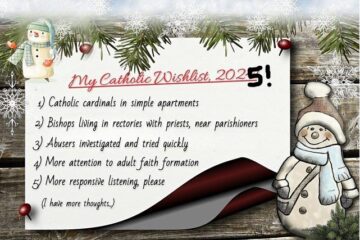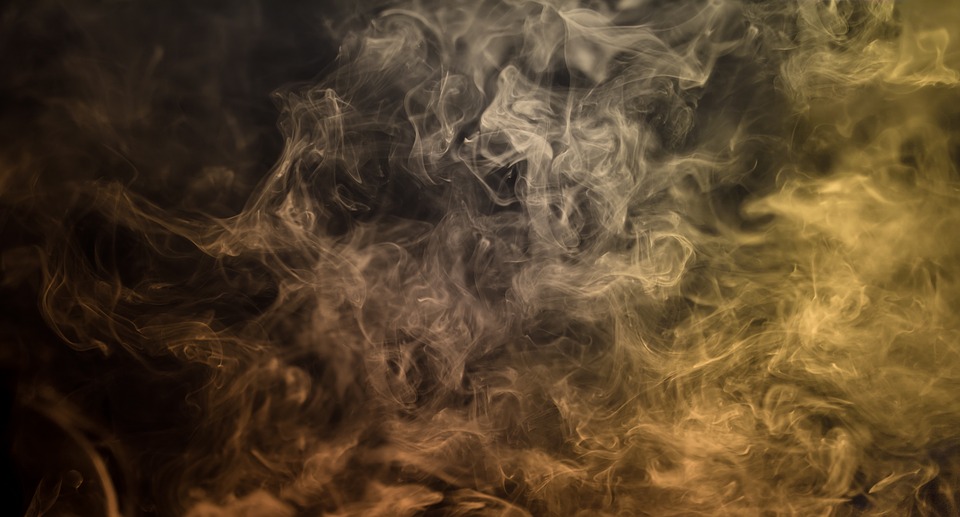Who is going to save our Church? Not our bishops, not our priests and religious. It is up to you, the people. You have the minds, the eyes, and the ears to save the Church. Your mission is to see that your priests act like priests, your bishops act like bishops, and your religious act like religious. – Fulton J. Sheen
That quote by Sheen is what leads my column today over at Word on Fire, where I am following up on last week’s piece. As a reminder, that column suggested that the laity are being called to help the Church in a terrible moment.
Today’s piece is not as pleasant a read as last week’s, nor was it as easy to write, because in the midst of dreadful revelation none of us want to believe we have any measure of participation in these sins of the Church.
But, in a way, we do. And that might ultimately be a kind of terrible beauty if it leads us toward becoming a Church more united in our sense of common purpose, practices, and protections, with less distinction held between her people and her “princes”.
“But,” I can hear some ask fairly, “how could we have asked these questions if we did not know?”
The answer is, we couldn’t have, because—at least “officially”—we did not know. Diocesan councils led by layfolk have not been the norm.
But it’s only a partial answer. The truth is, most Catholics who are involved with the Church have, at some point, “heard things” or have been advised by other Catholics to be wary of Father So-and-So, or not permit their child to serve Mass with him.
In other words, we may not have “known” about the distressing behavior of many of our priests or bishops, but we had strong inklings, and sometimes more than that.
As a pretty standard-issue Catholic—one educated in a Catholic elementary system, brought up in the sacraments, and experienced in the sad-but-common “time away from the Church” that defines most Catholics—I have known all my life that amid our faithful and good priests there have always been a number of “bad” ones, those spiritually unhealthy and immature men who might have been good, had they been well-shepherded themselves, or who were wholly unsuited to the life and should never have been ordained.
I have known it because as a ten-year old, I endured a shattering, traumatic experience with a priest. My best friend (at a parish forty miles away) had a similar experience, only disclosed in adulthood.
I have known it because while volunteering at my parish I “heard” things about a (now deceased) priest I really liked, and I didn’t want them to be true.
I have known it because even as a perfect nobody within the church, I had heard all the rumors about Theodore McCarrick decades ago. If I heard them, I’m sure others did as well.
Yet I said nothing.
It’s fair to worry that if we’re looking into “rumors” things can devolve into a witch-hunt, but when rumors have become “established” it seems to me an inquiry into them would be an act of justice, not just for victims but for wrongly accused priests. It’s fair too, to be concerned that bringing layfolk into our policies and procedures may end up serving agendas, rather than truth. My hope is in a laity that is thoughtfully centrist.
As we discern how to proceed, we can immediately do two things:
- Pray for our priests, by name when we can, every day and at every Mass.
- Do penance for the sins of our Church, and be willing to suffer a bit for the sake of its restoration to spiritual health.
Some might balk at the notion of doing penance for the sins of our leadership, but “We are Church” and must therefore in all ways be the Church we want to see proceed from this day forth. When Joel called Judah to repentance he called the whole people
You can read the whole piece here.
While researching something yesterday, I was surprised to stumble on this, in Leviticus 4:3: When the high priest sins, he makes everyone else guilty, too. Yikes!
Next week, I’m going to write about what practical measure for the restoration of a Church in Crisis might look like. Pray for me on that.
Seriously, pray for me!
Image: WikimediaCommons



6 Comments
With all due respect, Cardinal Wuerl, No. Bishops Investigating Bishops Won't Do - The Anchoress · August 6, 2018 at 11:29 am
[…] Previous With all due respect, Cardinal Wuerl, No. Bishops Investigating Bishops Won’t Do […]
7 Steps to Start Fixing the Messes, Before the Catholic Church Empties Out - The Anchoress · August 9, 2018 at 12:14 pm
[…] as promised last week, I’ve outlined 7 “first steps” in all — just to start. You can read the […]
Dear Bishops: Don't Wait Until November to Take Action - The Anchoress · August 24, 2018 at 12:21 pm
[…] human being would be appalled, and we haven’t really needed bishops to call us to prayer; layfolk have been making that call since the McCarrick story broke, over a month […]
Henneberger's cri de coeur is a scorching rebuke to Catholic bishops - The Anchoress · December 10, 2018 at 9:35 pm
[…] will now have to step up and share in the penance, and then insist on meaningful inclusion in the structuring of reforms as we go […]
The Sheen Postponement: What was I thinking? - The Anchoress · December 4, 2019 at 2:39 pm
[…] revere Fulton Sheen (whose words I have quoted while writing about lay involvement in the necessary reforms that will hopefully happen in the wake of our horrific sex abuse scandals); I want to see him […]
"Set aside every fear..." with the help of Catherine of Siena - The Anchoress · December 20, 2019 at 3:13 pm
[…] to our times even from the 14th century, and a fearless model for the layfolk who may become the great force for reform in how we create our priests and teach our […]